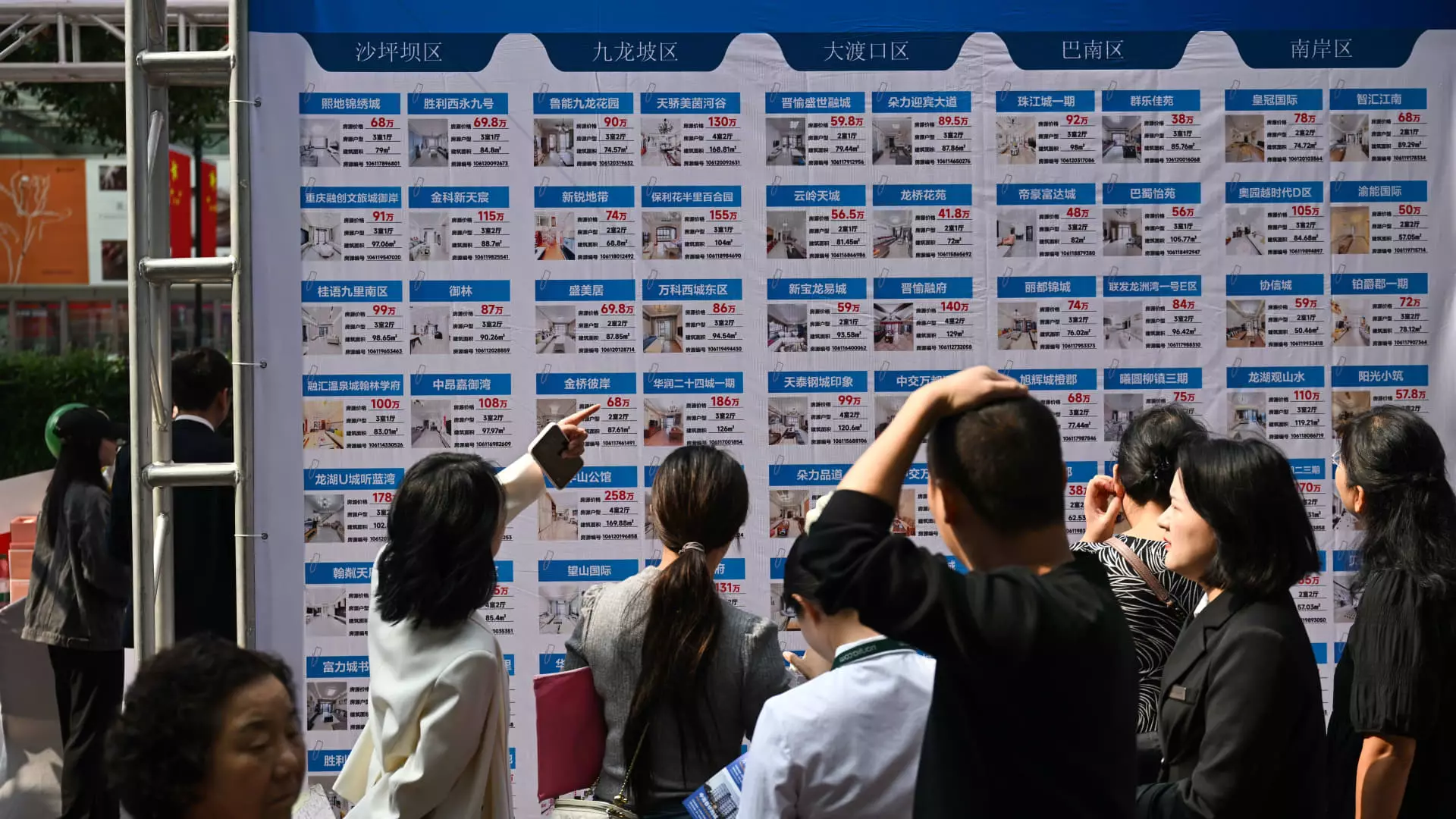The Chinese property market has faced significant challenges, transitioning from a phase of rapid growth to a period characterized by slumping transactions and shifting consumer preferences. As government policies attempt to stabilize the sector, a handful of companies have emerged as focal points for investors. One such company is KE Holdings, also known as Beike, which offers a platform for housing transactions and related services. This article delves into the current state of KE Holdings, contextualized within the broader economic landscape of China’s real estate sector.
Despite the broader struggles of the Chinese property development sector, KE Holdings has shown resilience, reflected in a robust performance of its U.S.-traded shares, which surged by 38% in 2024. This rise stands in stark contrast to the sluggish performance of an index tracking Chinese property stocks in Hong Kong, which has only reported a minor gain of nearly 3% over the same period. This divergent performance raises intriguing questions about the underlying factors driving KE Holdings’ success amidst general market malaise.
Market analysts, especially from Jefferies, project further positive momentum for KE Holdings. Their outlook suggests that both new and existing home transactions will benefit from recent support initiatives established by the government, designed to halt the ongoing decline in the property market. This renewed optimism aligns with the motivations driving firms within the sector to explore ancillary services like home rentals and renovations, areas in which KE Holdings has successfully established a foothold.
The Chinese government has made concerted efforts to revive the struggling real estate market, with President Xi Jinping recently directing high-level meetings aimed at stabilizing the sector. Initiatives such as interest rate cuts for existing mortgage holders and the easing of home purchase restrictions in major cities signal a proactive approach to rekindling consumer confidence and stimulating demand.
However, the outcome of these initiatives remains uncertain. Upcoming trends indicate a spike in real estate transactions during holiday periods, which could buoy market spirits in the short run. However, analysts express caution, underscoring that the recovery may be protracted and dependent on sustained fiscal support. The challenge lies in navigating a housing landscape marked by older inventory and an aging demographic, thus complicating traditional sales strategies that hinged on the pre-sale of new developments.
In light of the cascading shifts within the property sector, investment strategies must evolve. Richard Tang, a strategist at Julius Baer, suggests a tempered approach for investors, advocating for a reduction in exposure to the property sector and related stocks despite glimpses of improvement in new home sales. His insights reflect a broader sentiment among analysts, indicating that while potential growth exists, it is essential to maintain a cautious stance given the underlying structural fragilities.
Further complicating the investment landscape, a report from Bank of America Securities warns that home prices could still face a downturn, potentially dropping by an additional 10% before stabilization occurs. Despite this caution, KE Holdings appears well-positioned, capturing a significant market share, especially with properties tied to its brokerage channels. This competitive edge could provide a buffer against broader price fluctuations and market instability.
Amid the complexities of the Chinese property market, KE Holdings finds itself at a crossroads of opportunity and risk. Analysts from Goldman Sachs highlight potential eligibility for inclusion in connect programs that would allow mainland Chinese investors to purchase its stocks listed in Hong Kong, which could catalyze stock performance and improve liquidity.
Moreover, KE Holdings has managed to maintain relatively stable transaction prices, despite broader market declines. Its strategic focus on shareholder returns through dividends and share buybacks signals a commitment to long-term value creation, which may appeal to risk-averse investors seeking stability in a volatile market.
Ultimately, while KE Holdings may present a compelling investment case, it is crucial for stakeholders to consider the inherent risks posed by the fluctuating dynamics of the broader Chinese property market. The convergence of government policies, consumer sentiment, and market adaptability will shape the company’s trajectory in the evolving landscape of real estate and beyond.
As China navigates its property sector’s complexities, KE Holdings stands out as a potential beacon of resilience, yet continual vigilance and adaptive strategies will be necessary to weather the storm and seize forthcoming opportunities.


Leave a Reply